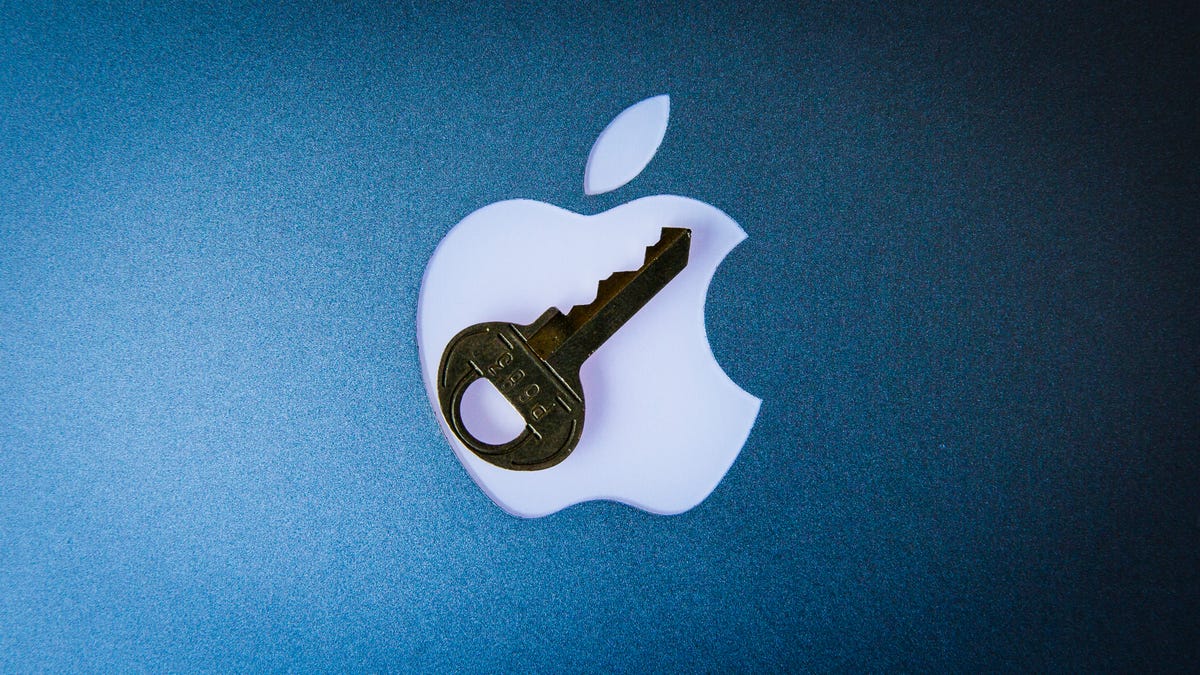Apple calls Justice Department's filing in iPhone case a 'cheap shot'
Bruce Sewell, Apple's general counsel, says the FBI's response is a smear campaign made out of desperation.

The battle between Apple and the FBI just got a lot more heated.
Bruce Sewell, Apple's top attorney, on Thursday ramped up his criticism of the government, accusing the US Department of Justice of taking a "cheap shot" and waging a smear campaign. His remarks were made in response to a Justice Department filing earlier that day that took a harsh tone and accused Apple of skewing the facts in the case.
The agency's brief "reads like an indictment," Sewell said during a call with reporters.
"In 30 years of practice, I don't think I've ever seen a legal brief that was more intended to smear the other side with false accusations and innuendo, and less intended to focus on the real merits of the case," he said.
Sewell suggested the Justice Department's assertions were akin to Apple asking if the US could trust the FBI. He jokingly brought up rumors that former FBI Director J. Edgar Hoover ordered the assassination of President John F. Kennedy in 1963.
"We are going to court to exercise our legal rights," Sewell said. "It seems like disagreeing with the Department of Justice means you must be evil and un-American. Nothing could be further from the truth."
A Justice Department spokesman, when asked about Sewell's comments, referred CNET back to the government's filing. In it, the Justice Department said that "Apple's rhetoric is not only false, but also corrosive of the very institutions that are best able to safeguard our liberty and our rights: the courts, the Fourth Amendment, longstanding precedent and venerable laws, and the democratically elected branches of government."
Apple and the US government have been battling for weeks over the extent to which Apple should help pull data from an iPhone used in December's San Bernardino, California, massacre. The FBI wants Apple to create a special version of its mobile software to help access data on an iPhone used by Syed Farook, one of two terrorists who killed 14 people and wounded 20 others. Apple, which said it has already helped the FBI as much as it can, contends the court doesn't have the authority to force it to write a special version of iOS, and the company has turned this into a broader debate over personal privacy, one that has drawn the tech industry to its side.
Apple has been resisting a February 16 federal court order to unlock the iPhone 5C used by the San Bernardino terrorist. The Justice Department's filing on Thursday presented the government's arguments for why Apple should comply with the order.
In Thursday's 43-page filing, the government took a harsher tone than before, accusing Apple of lying and using "corrosive" rhetoric in its public comments and court filings. The Justice Department said complying with the FBI's request wouldn't be an "undue burden" for Apple. The government also said Apple "deliberately raised technological barriers that now stand between a lawful warrant and an iPhone containing evidence related to the terrorist mass murder of 14 Americans."
The Justice Department also insinuated it could push the court for tougher remedies. "The FBI cannot itself modify the software on Farook's iPhone without access to the source code and Apple's private electronic signature. The government did not seek to compel Apple to turn those over because it believed such a request would be less palatable to Apple. If Apple would prefer that course, however, that may provide an alternative that requires less labor by Apple programmers."
Apple's attorneys took offense to the comments and disputed the Justice Department's assertions. For one, the government said Apple has been more accommodating to similar requests in China, something Sewell and Apple's other attorneys fiercely disputed. The attorneys called the accusations "ridiculous" and said Apple has never built a backdoor in its products, nor has any government ever asked it to do so. Only now, in the US, is it facing that question, the attorneys said.
They reiterated Apple's belief the disagreement should be solved by Congress, not by the courts. A ruling in one region doesn't dictate the law in another, and Apple could face similar orders all over the country, they said.
All the Justice Department's newest filing does is "cheapen the debate," Sewell said.
"We know there are great people in the DOJ and the FBI," he said. "We work shoulder to shoulder with them all the time. That's why this cheap-shot brief surprises us so much."
Update at 4:40 p.m. PT with background information and further quotes.

